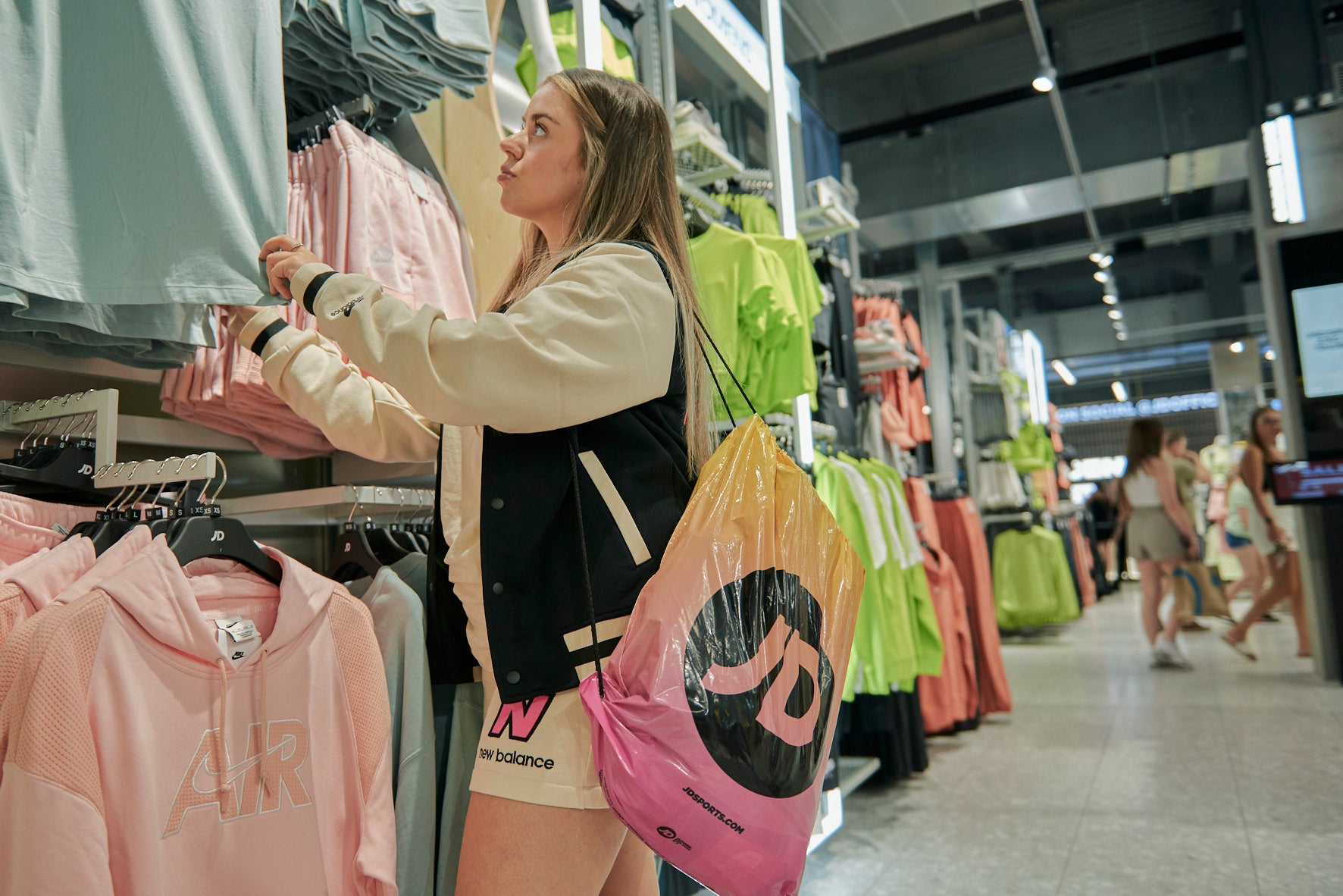JD Sports says shoppers ‘motivated by desire, not economics’
The sportswear giant said its main consumers are a younger demographic than most other retailers.

Your support helps us to tell the story
From reproductive rights to climate change to Big Tech, The Independent is on the ground when the story is developing. Whether it's investigating the financials of Elon Musk's pro-Trump PAC or producing our latest documentary, 'The A Word', which shines a light on the American women fighting for reproductive rights, we know how important it is to parse out the facts from the messaging.
At such a critical moment in US history, we need reporters on the ground. Your donation allows us to keep sending journalists to speak to both sides of the story.
The Independent is trusted by Americans across the entire political spectrum. And unlike many other quality news outlets, we choose not to lock Americans out of our reporting and analysis with paywalls. We believe quality journalism should be available to everyone, paid for by those who can afford it.
Your support makes all the difference.JD Sports has said its customers are “motivated by desire rather than economics”, despite cautioning over inflation affecting trading during the rest of the year.
The sportswear giant, which sells popular brands such as Adidas and Nike, said its main consumers are a younger demographic than most other retailers.
Neil Greenhaulgh, JD’s chief financial officer, told the PA news agency: “Image is incredibly important for our customers. The shoes they wear and the clothes they wear defines who they are as individuals, it defines their personality.
“Their desire to spend doesn’t really change, because they are motivated by desire rather than economics.”
Regis Schultz, JD’s chief executive, added: “Unemployment is very low and it is much easier for young people to find a part-time job, so they have more extra income to spend on the things they want, like trainers.”
The retailer warned in a statement that inflation, widespread economic uncertainty and industrial action leading to further challenges in supply chains could affect trading in the second half of the year.
It comes as JD posted a fall in its pre-tax profits which totalled £298.3 million for the first half of the year, a drop from £364.6 million a year ago.
JD said the results are at the top end of its expectations, with the reduction on last year’s profits partially driven by supply chain disruption affecting international brands and dragging down stock of its key footwear styles.
Profits in North America nearly halved as a result of the temporary fiscal stimulus in the US last year boosting sales more than usual, JD said.
However, the group has not altered its full-year profit outlook and said results will be in line with the record performance of the previous financial year.
Despite worsening economic conditions, consumers are “reluctant to give up the things most important to them”, the company said, adding that demand remains resilient.
This is reflected in the company’s revenue, which grew to £4.4 billion in the first half of the year – up from £3.9 billion a year ago.
Sales were particularly strong in the summer as a result of more people going on international holidays, although trade slowed in August and early September as shoppers held back on buying clothes for the autumn season while the weather stayed warm, JD said.
JD’s non-executive chair Andrew Higginson said: “Whilst the overall performance continues to be encouraging and the result for the half-year was at the upper end of the board’s expectations, it must also be recognised that the most material trading periods lie ahead.
“Given the widespread macro-economic uncertainty, inflationary pressures and the potential for further disruption to the supply chain with industrial action a continuing risk in many markets, it is inevitable that we remain cautious about trading through the remainder of the second half.”
Mr Higginson also pointed out that although there has been a “period of transition” for the board, it has not impacted the group’s financial performance.
JD’s former boss Peter Cowgill resigned in May after the retailer was fined £4.3 million by the UK’s competition watchdog for sharing commercially-sensitive information with Footasylum, the rival it was seeking to buy.
It then incurred a £50 million loss from the sale of Footasylum after being ordered to offload the business by the Competition and Markets Authority.
JD Sports revealed on Wednesday it had agreed to pay £5.5 million to Mr Cowgill after he stepped down.
Mr Cowgill will take home £3.5 million over two years as part of an exit agreement preventing him from taking a new job at a competitor company or advising similar brands.
He will also receive £2 million for giving his support and insight to the new chief executive, former B&Q executive Mr Schultz, and chairman Mr Higginson, over an agreed three-year consultancy period.
Shares in JD Sports were down around 3% on Thursday morning.